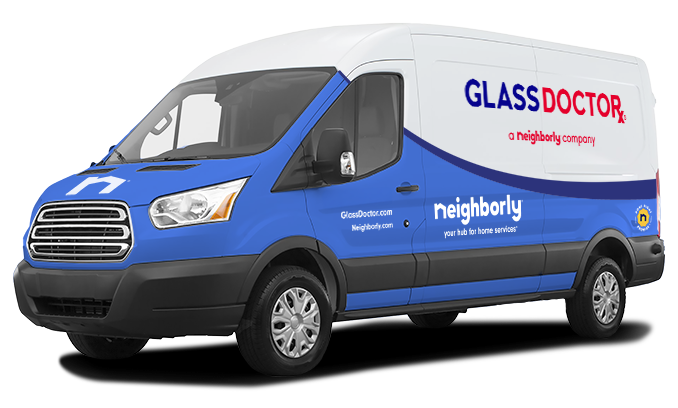
Glass Doctor explains the pros and cons of various headlight types to help drivers choose the best option.
|
With such a large array of headlights on the market, it can be difficult to determine the best car headlights for you. Headlight technology is constantly evolving as manufacturers strive to literally outshine the competition, leaving consumers scratching their heads over which car headlight types are a worthwhile investment.
Does Glass Doctor offer headlight restoration near me? You may be in luck! Call the Glass Doctor team or schedule an appointment online for car headlight restoration services.
What Are the Best Car Headlight Types?
Currently, halogen lights are the most popular on the market and are found in most cars. However, as cars and styles continue to develop, we are starting to see a larger variety of car headlight types. Ultimately, finding the best headlights for your car will depend on several factors, including the headlights your car was equipped with from the factory. (Hint: If you don’t know, check your owner’s manual.) Here’s more information about the headlight types on the market.
What Are Halogen Headlights?
Working similarly to those old incandescent bulbs in your home, halogen headlights produce light through a tungsten and glass filament within a glass bulb filled with halogen gas. Also like the incandescent bulb, halogens aren’t very efficient, producing bright-white light through heating filaments and generating large amounts of heat as wasted energy.
Pros and Cons of Halogen Headlights
Halogen headlights are quite versatile and cost-effective, as well as dimmable, making them the headlight of choice in automobiles produced – though this may shift as other headlight technology advances and becomes more affordable. Expect your halogen bulbs to last about 1,000 hours – if you install them correctly – which involves not touching the glass on the bulbs. Expect to shell out about another $30 for a car headlight replacement set if you do touch the bulbs, as uneven heating of the glass (a result of your greasy fingerprints) can drastically cut bulb life. If you’ve left your fingerprints behind, try an alcohol-based cleaner. can drastically cut bulb life. If you’ve left your fingerprints behind, try an alcohol-based cleaner.
What Are HID Headlights?
Unlike halogen bulbs, the xenon gas in HID headlights is highly unreactive. Think of these lights like the fluorescent lights in a basement: HID (xenon) headlights do not have a filament, instead utilizing xenon gas in the sealed bulb to send an arc of energy between two electrodes to create light.
Pros and Cons of HID Headlights
Though much more efficient than halogen headlights, courtesy of lower operating temperatures, the main drawback of these lights is they take a long time to reach operating temperature and provide strong light. Because they take so long to achieve full brightness, they do not work well as separate high beams, resulting in many manufacturers utilizing a xenon/halogen combination. From a budget standpoint, repairs and/or replacement can also be costly – hundreds of dollars, and up to $500 additional if you need to replace a ballast/transformer. These lights are also well known for making other drivers on the road miserable, due to their notoriously blinding glare, which is worse when the headlight is misaligned.
What Are LED Headlights?
LED headlights employ a semiconductor diode to move electrons, giving off light when voltage is applied via a process dubbed electroluminescence. Their distinctive look and long life make them popular today in a wide array of products, from simple in-home lamps to electronics. But are they the best car headlights?
Pros and Cons of LED Headlights
LED headlights produce a light brighter than halogens and a color warmer than HIDs. Though not as bright as HIDs, they provide more focused illumination. Due to their small shape, they can be arranged in a wide variety of shapes and configurations. (Goodbye, dome reflectors!) Compared to halogens and even HIDs, they require very little power to operate and are commonly used in hybrid and electric vehicles. The emitters/chips used to operate them do create some heat, and since the engine bay is a warm environment, LED headlight systems typically require a cooling system to preserve proper operation. This makes them harder to design and implement, and thus more costly than HIDs.
Upgrading Your Old Car with the Best Car Headlights
Despite the availability of conversion kits and the possibility of better lighting, many states have made HID and LED upgrades illegal due to their propensity to increase nighttime driving accidents and fatalities. If you are considering an upgrade, check which car headlight types are legal in your area. To protect fellow drivers, be certain to purchase a reputable brand that is fitted, installed and properly angled with the help of a specialist.
Car Headlight Restoration from Glass Doctor
Still struggling to see at night, even with those new-and-improved headlights? Even the best headlights on the market can’t help you see through a fog of scratched, worn windshield glass. For a brighter future, call the Glass Doctor experts or schedule an appointment online today to get started with your car glass repairs.

